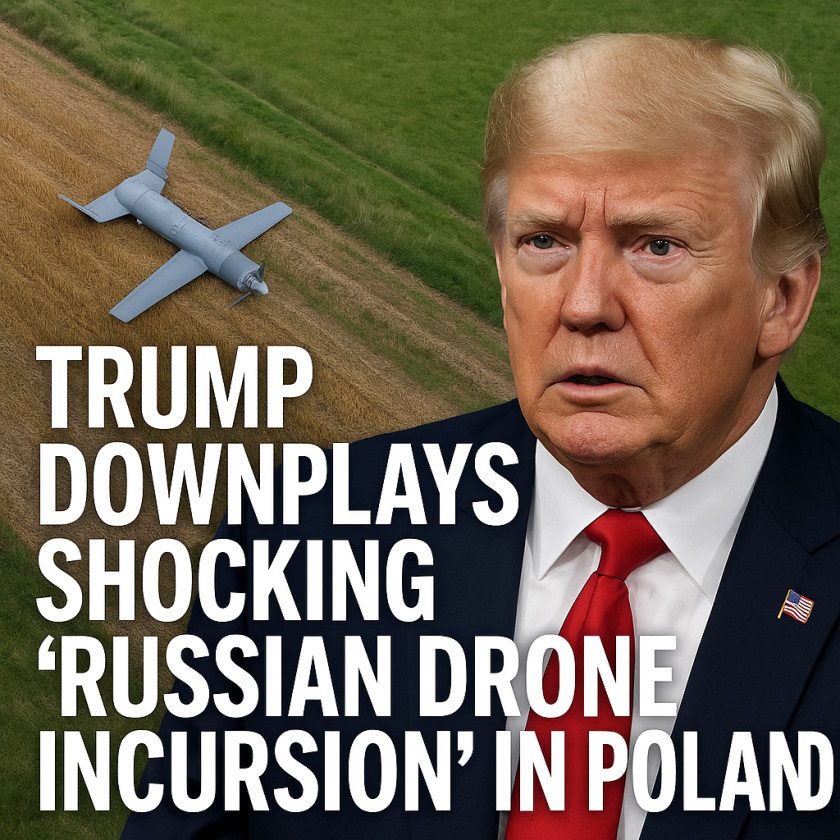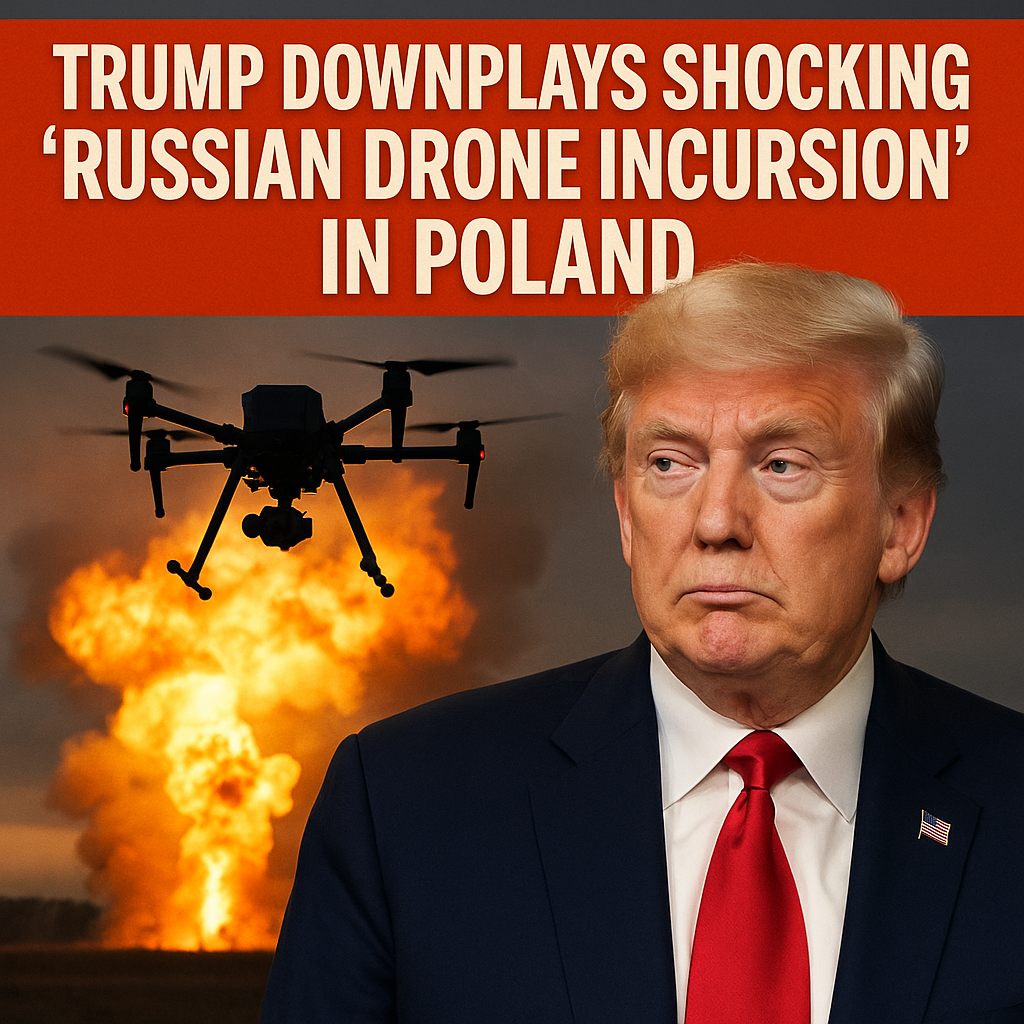Trump Downplays Shocking ‘Russian Drone Incursion’ in Poland
Trump Downplays Shocking ‘Russian Drone Incursion’ in Poland
In recent weeks, the international community has been captivated by reports of a concerning Russian drone incursion in Poland. This situation has led to varied opinions on how to respond, with former President Donald Trump downplaying the significance of the event, prompting a debate about national security and foreign policy.
The Nuances of the Drone Incursion

The drone incursion involves reports that Russian drones were detected near Polish airspace, raising alarms about potential threats to NATO member states. For many, this incident is alarming given ongoing tensions between Russia and the West. Poland, as a frontline state in the NATO alliance, bears particular vulnerability to any actions taken by Russia.
According to reports from multiple sources, including Al Jazeera, the drones were reportedly flying close to the border, causing unease among local authorities and military personnel. On the other end of the spectrum, Trump, in a recent statement, described the situation as “overblown” and emphasized that such incidents often happen without major consequences. His remarks raised eyebrows, especially amidst rising geopolitical tensions in Eastern Europe.
This divergence in responses illustrates the complexities surrounding issues of national security. While the concerns of NATO allies are valid, Trump’s downplaying of the event suggests a more relaxed approach to foreign threats—a viewpoint that draws both support and criticism from across the political spectrum.
The Political Landscape: Diverging Views
Critics of Trump’s comments argue that his downplaying of the incursion undermines the seriousness of Russia’s aggressive posturing in Eastern Europe. According to Sky News, a major political figure in Poland expressed deep concern over the potential implications of these incursions for NATO cohesion. The Polish government has called for closer cooperation among allies to ensure that such a situation does not escalate further.
Conversely, Trump maintains that sensationalizing events like this serves only to inflame tensions rather than foster productive dialogue. Supporters of his approach argue that decisive and rational handling of the situation can prevent unnecessary conflict. They suggest that understanding the context, including Russia’s actions in other regions, is crucial for forming an effective response.
Weighing the Evidence: What Lies Ahead?
The complexities surrounding the drone incursion raise important questions about the future of NATO and Western security. Will the alliance adopt a more militarized response, or will diplomatic solutions take precedence?
As reported by RT, while some NATO officials are advocating for a stronger military presence in Eastern Europe, others emphasize the need for diplomatic channels to resolve misunderstandings. Trump’s comments could shift the focus towards negotiations, but whether this approach will be embraced remains uncertain.
One significant factor to consider is the divided opinion among experts and policymakers. Some believe that strong military posturing is essential to deter Russian aggression, while others argue that dialogue is a more constructive path. The challenge lies in balancing these viewpoints within an alliance that must remain united in the face of external threats.
Convergence and Divergence in International Responses
When reviewing international responses to the drone incursion, a pattern of divergence emerges. Western allies, including those within NATO, have criticized Russia’s actions, indicating a call for increased vigilance. However, countries with closer ties to Russia appear more reserved, advocating for calm and restraint.
The importance of consensus among NATO members cannot be overstated. The organization’s strength is rooted in its united front against common threats, but differing opinions could lead to rifts in strategy. The potential implications extend not just to regional security but also to global geopolitical dynamics.
Conclusion: A Call for Unified Strategy
The recent Russian drone incursion in Poland represents a significant moment in international relations, revealing contrasting perspectives on how to approach threats from Russia. Trump’s downplaying of this incident raises valid questions about the balance between vigilance and pragmatism.
As the situation evolves, it will be crucial for NATO and its allies to navigate their responses thoughtfully, ensuring they strike a balance between demonstrating strength and fostering diplomacy. The path forward is complicated, but united strategies and open dialogue will be essential for addressing the multifaceted challenges posed by foreign incursions in sensitive regions.






































